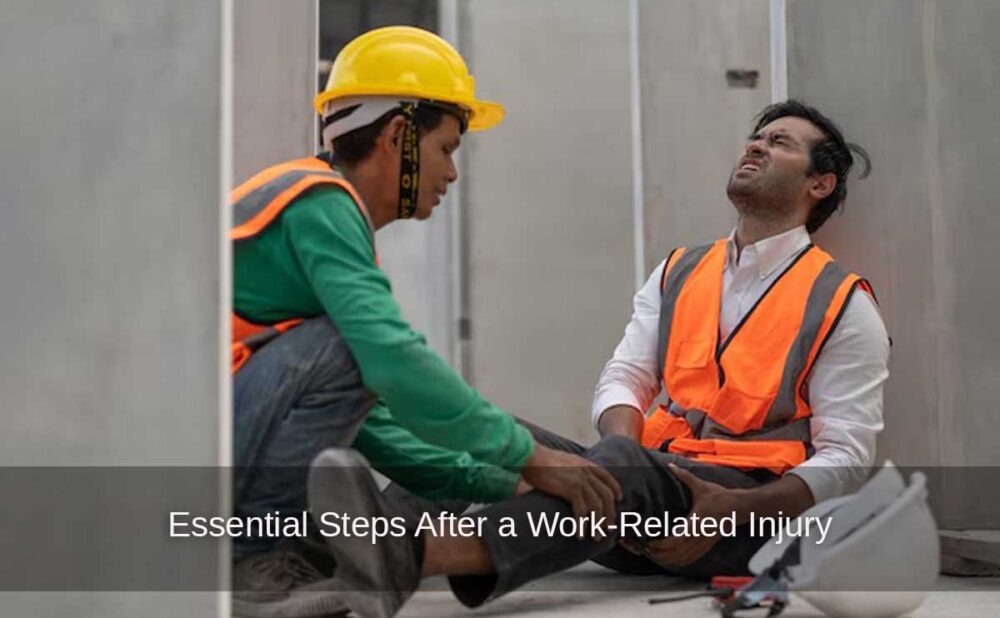Essential Steps After a Work-Related Injury
Experiencing an injury at work can be a distressing event, often leaving you feeling uncertain and overwhelmed. Understanding how to respond effectively is crucial, as it can significantly affect both your recovery process and your eligibility for workers’ compensation benefits. In Georgia, the laws surrounding Georgia workers’ compensation can be intricate, and knowing your rights and responsibilities is essential for securing the support you need during this challenging time.
Prioritize Your Health
Your health should be your primary concern. It’s essential to obtain medical care as quickly as possible, even if the injury appears minor. Some injuries may not show symptoms right away but can lead to significant long-term consequences. Be sure to inform the healthcare provider that your condition is work-related. Additionally, it is important for you to see a physician who your employer has pre-approved; otherwise, your insurance may not cover your medical expenses. If you need emergency medical attention immediately after the incident, this requirement does not apply.
Notify Your Employer
It is essential to report your injury to your supervisor or employer as soon as possible, ideally on the same day or within a month at most. Failing to do so could jeopardize your ability to file for workers’ compensation later. You must notify your employer of any injuries to initiate the claims process. Your employer will help you access your Georgia workers’ compensation benefits.
Keep Detailed Records
Documenting the incident thoroughly is vital. Make sure to record:
- The specific details of the injury, including time, date, and location.
- Contact information of any witnesses present.
- A log of all medical treatments received, including diagnoses and recommendations.
- Any written communication with your employer or the insurance company regarding the injury.
Comprehensive documentation is crucial for supporting your workers’ compensation claim, as it serves as evidence in case of disputes or denials.
File Your Workers’ Comp Claim
Complete the necessary workers’ compensation claim form provided by your employer. Adhere to all instructions and state-specific deadlines to ensure your claim is valid. To formally request benefits, you’ll need to:
- Fill out Form WC-14.
- Send copies to the State Board of Workers’ Compensation, your employer, and your insurance provider
You typically have up to one year from the injury date to submit your claim. After filing, the insurance provider will evaluate your request. If approved, you will start receiving benefits; if denied, you have the right to appeal. Understanding the nuances of Georgia workers’ compensation law can greatly enhance your chances of a successful claim.
Adhere to Medical Advice
Follow all medical advice and attend scheduled follow-up appointments. Non-compliance could adversely affect your recovery and weaken your claim. Consistently adhering to the prescribed treatment not only aids in your healing but also demonstrates to your employer and the insurance company that you are taking your recovery seriously.
Maintain Open Communication
Maintain ongoing communication with both your employer and their workers’ compensation insurance provider regarding updates on your recovery status and any changes in employment as advised by healthcare professionals. Inform all parties and allow them to make necessary arrangements for your return to work.
Consult with a Workers’ Comp Lawyer
It may be beneficial to engage with an attorney experienced in workers’ compensation laws who can defend your rights—especially important if there are disputes over claims or if you experience severe injuries. A Georgia workers’ compensation lawyer can navigate the complexities of the legal system, ensuring that you receive the maximum benefits available to you.
Plan for Your Return to Work
Collaborate with your healthcare provider to understand any physical limitations you may have. If necessary, discuss potential adjustments with your employer to ensure a safe transition back to work. Your employer must provide reasonable accommodations under Georgia workers’ compensation law to help you reintegrate into the workplace smoothly.
Attend Required Hearings
You must attend hearings before a workers’ compensation board or judge if there are disputes regarding your claim or medical procedures. Bring evidence to support your case, such as medical records and witness testimonies. Being well-prepared can greatly influence the results of your case.
Know Your Rights and Benefits
Educate yourself about your rights under Georgia’s workers’ compensation laws, including entitlements to medical treatment, wage replacement, and possible disability settlements. Understanding these rights can empower you to advocate for yourself throughout the claims process.
In conclusion, while experiencing a work-related injury can be a daunting ordeal, being informed and prepared can make a significant difference. By understanding the steps to take and enlisting the support of legal professionals when necessary, you can effectively manage your recovery and maximize your chances of a successful claim. Remember, you are not alone in this process, and resources like The Jewkes Firm are available to assist you in securing the compensation you deserve. Our expertise in Georgia workers’ compensation benefits can be a vital asset in your journey toward recovery and justice.





